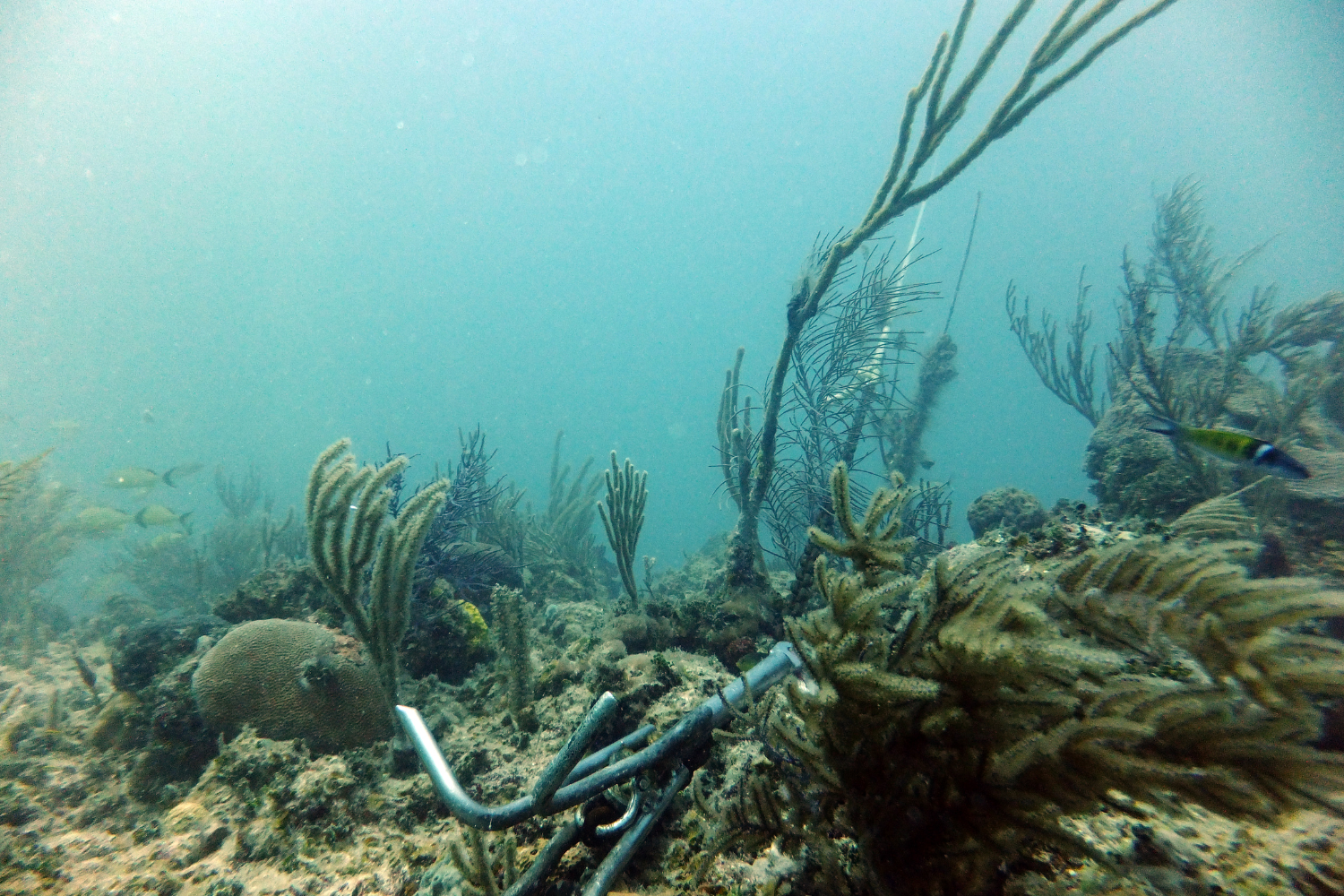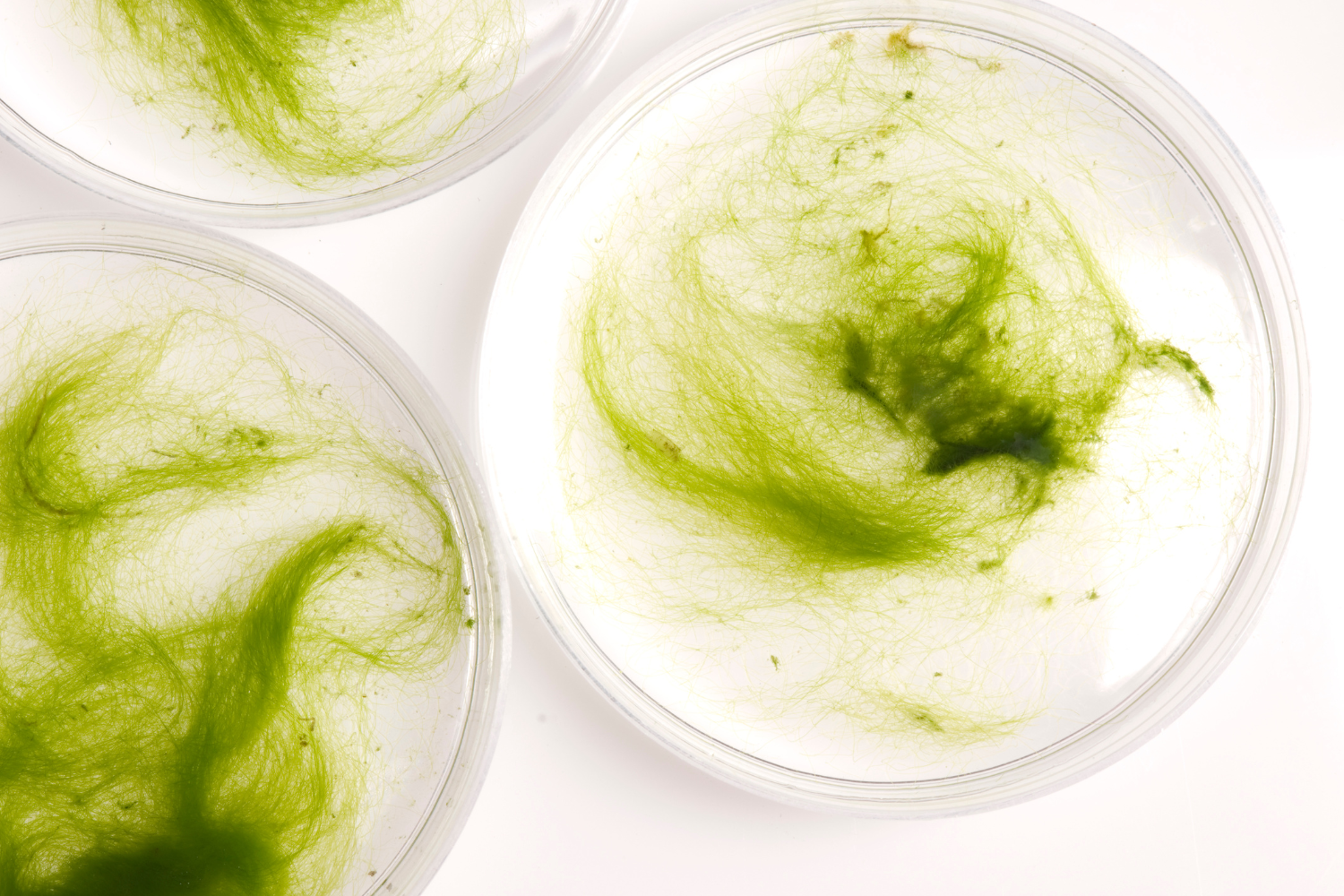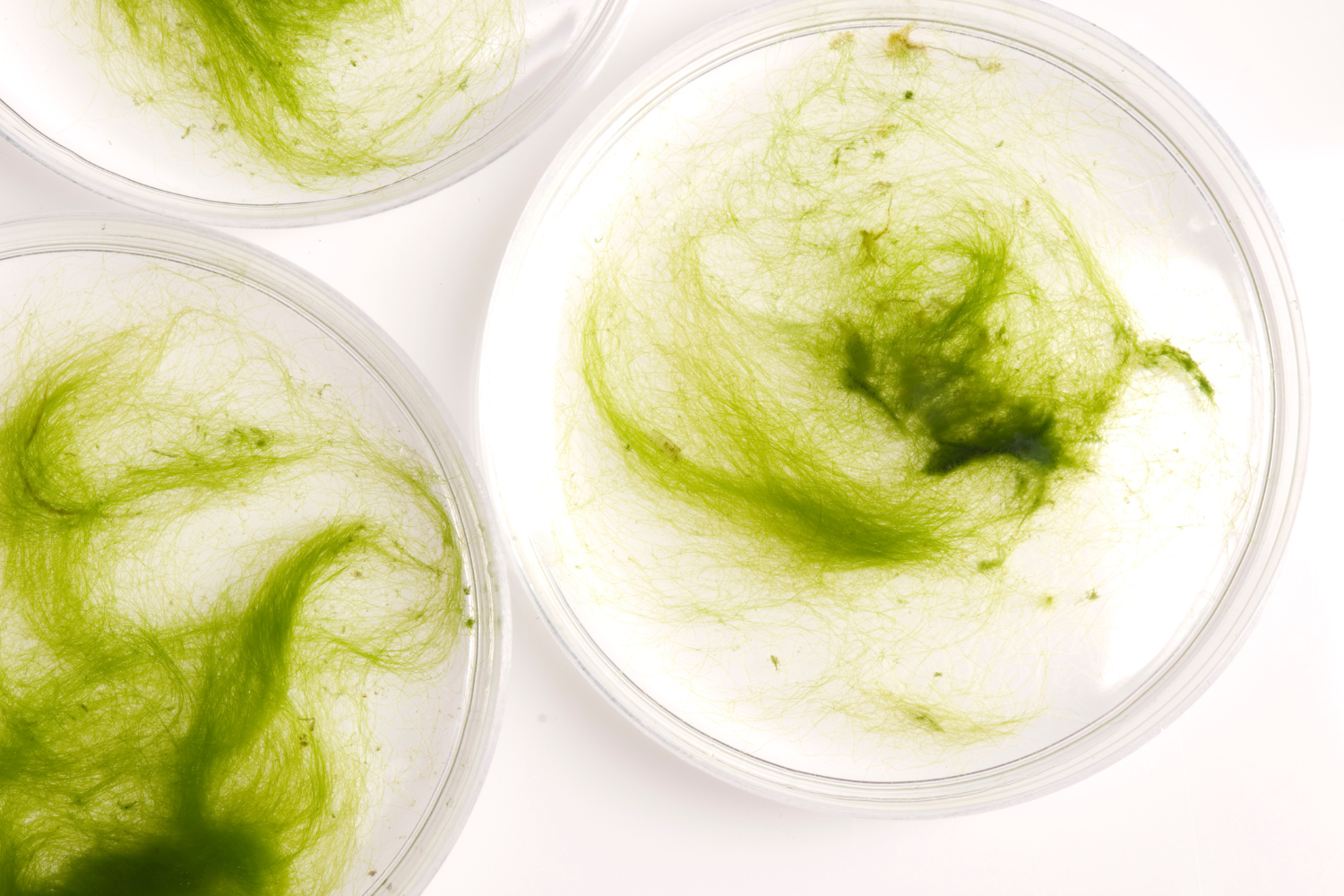Vegan algal oil supplements offer a plant-based, sustainable alternative to traditional fish oil, sourced from marine algae known for its rich omega-3 content. These supplements cater to the growing consumer interest in environmentally friendly and plant-based products. This blog explores NutraPak’s expertise in crafting premium algal oil supplements, focusing on their advanced manufacturing processes, rigorous quality standards, and tailored solutions that help brands meet the rising demand for innovative, sustainable nutrition.
Table of Contents
ToggleThe Growing Demand for Sustainable Omega-3s
Omega-3s are known to support heart, brain, and joint health. These essential fatty acids contribute to cardiovascular function and cognitive performance.
They are associated with anti-inflammatory properties, which may help support the body’s natural response to pain and inflammation. As more consumers prioritize overall wellness, the demand for sustainable omega-3 sources has surged.

Consumer Trends Toward Sustainability
Growing awareness about the impact of overfishing has made sustainability a top concern for many consumers. Overfishing disrupts marine ecosystems, threatening biodiversity and the long-term availability of natural resources.
This has led to an increased demand for plant-based and eco-conscious products. Vegan algal oil, as a sustainable omega-3 source, aligns perfectly with these evolving consumer values.

What Is Vegan Algal Oil?
Vegan algal oil is derived from marine algae, a natural source of omega-3 fatty acids like DHA and EPA. These fatty acids contribute to heart, brain, and overall health.
Unlike fish oil, algal oil is a sustainable alternative. It offers the same nutritional benefits while minimizing environmental impact, making it a preferred choice for health-conscious and eco-conscious individuals.

Key Benefits of Algal Oil
Vegan algal oil provides numerous health and sustainability benefits, making it a popular choice among consumers. Key benefits include:
- 100% vegan and suitable for plant-based consumers.
- Free from contaminants like heavy metals found in some fish oils.
- Environmentally sustainable, reducing the strain on marine ecosystems.
- Provides DHA and EPA, nutrients associated with heart, brain, and joint health.
- Offers a clean and allergen-free omega-3 source.

NutraPak’s Vegan Algal Oil Manufacturing Process
NutraPak USA’s manufacturing process is designed to produce high-quality, sustainable algal oil supplements that meet growing consumer demands. Focusing on purity, potency, and environmental responsibility, NutraPak provides manufacturing services tailored to the supplement industry’s finest details.
Sourcing and Cultivation
NutraPak partners with sustainable algae producers who prioritize eco-conscious cultivation practices. These partnerships ensure that only the highest-quality raw materials are used, supporting marine ecosystem health and promoting a responsible supply chain.
Algae are cultivated in controlled environments to prevent contamination and optimize nutrient content. This process guarantees a consistent and reliable supply of premium-quality algal oil, enabling NutraPak to produce vegan supplements that meet the strict standards of the natural products industry.
Extraction and Refinement
NutraPak uses advanced extraction methods designed to retain the natural DHA and EPA content in algal oil. These techniques utilize cutting-edge technology to retain the nutrients’ bioavailability while reducing the presence of impurities.
The refinement process is carefully managed to minimize waste and environmental impact. This commitment to sustainability ensures that NutraPak’s manufacturing services are aligned with the growing demand for eco-friendly nutritional supplements.
Quality Assurance
NutraPak’s rigorous quality assurance protocols include raw material testing and extensive checks for contaminants, consistency, and potency. Every batch of algal oil undergoes strict evaluations to ensure it meets industry standards.
All manufacturing processes are conducted in GMP-certified facilities, adhering to FDA guidelines and delivering unparalleled quality control. This commitment builds trust with brands and consumers, setting NutraPak apart from most other major retailers and manufacturers.

Customization Options for Algal Oil Supplements
NutraPak offers flexible manufacturing services designed to meet the specific needs of health brands. From supplement formats to innovative packaging solutions, NutraPak delivers customized products for multi-sized corporations nationwide.
Supplement Formats
NutraPak provides a wide range of formats to cater to diverse consumer preferences:
- Softgels for easy consumption and convenience.
- Liquid formulations for those who prefer alternatives to traditional pills.
- Capsules, including caplets and gelcaps, designed for precise dosing and enhanced consumer appeal.
These options ensure brands can produce private-label softgels, gelcaps, caplets, tablets, and capsules that stand out in the nutraceutical and supplement market.
Packaging Solutions
NutraPak offers eco-friendly packaging options to support sustainability goals. These include durable plastic bottles, blister packs, caps, pumps, and seals, all sourced with an emphasis on sustainable packaging practices. This ensures product freshness while minimizing environmental impact.
Formulation Add-Ons
Algal oil supplements can be enhanced with additional nutrients such as Vitamin D, antioxidants, or other health-supporting ingredients. These formulation add-ons allow brands to create unique products that meet specific consumer needs, offering unparalleled excellence in customization. This approach gives health brands a competitive edge in a crowded marketplace.

Challenges and Considerations in Algal Oil Manufacturing
Manufacturing vegan algal oil supplements presents unique challenges that require careful planning and expertise. NutraPak’s experience in the natural products industry helps brands navigate these complexities while maintaining exceptional quality and sustainability, from addressing cost concerns to ensuring regulatory compliance.
Cost vs. Consumer Demand
Algal oil is significantly more expensive than fish oil because it involves sustainable cultivation methods and advanced extraction processes. These higher production costs impact pricing, which may deter some consumers.
However, the rising demand for plant-based and eco-friendly products highlights the willingness of health-conscious individuals to pay a premium for sustainability. NutraPak balances cost considerations with extremely competitive pricing to make these niche products more accessible to brands and consumers.
Educating Consumers
Educating consumers about the benefits of algal oil is essential for market growth. Highlighting its sustainability, absence of contaminants, and alignment with plant-based lifestyles highlight algal oil supplements as a plant-based alternative for health-conscious consumers. NutraPak supports brands in creating clear, informative labeling and marketing materials that emphasize these advantages, helping them effectively reach eco-conscious and vegan consumers.
Regulatory Compliance
Strict regulatory compliance is vital in the nutraceutical and supplement market. NutraPak ensures all algal oil supplements meet FDA standards and international labeling requirements. This includes accurate claims about DHA and EPA content, vegan certifications, and manufacturing processes. These measures protect brands and consumers while establishing trust in NutraPak’s unparalleled quality and attention to detail.

Applications for Vegan Algal Oil Supplements
Vegan algal oil supplements offer a wide range of applications, making them a versatile option for health-conscious consumers. With benefits that span cardiovascular health, cognitive function, and general wellness, these supplements cater to diverse needs and preferences.
Cardiovascular Health
Omega-3 fatty acids like DHA and EPA are associated with heart health. They may play a role in maintaining healthy triglyceride levels and overall cardiovascular function, making algal oil supplements a natural choice for cardiovascular-focused formulations. NutraPak’s manufacturing services are designed to meet the growing demand for heart-healthy plant-based products.
Cognitive Function
DHA, a key component of algal oil, plays a role in brain health, contributing to memory and cognitive support. Regular supplementation with algal oil may support cognitive function as part of healthy aging, making it a valuable addition to brain health supplements. NutraPak helps brands create products that meet these specific consumer needs.
General Wellness
Algal oil supports energy, joint health, and overall vitality as a daily omega-3 source, making it ideal for those following a plant-based lifestyle. The supplements’ purity and sustainability appeal to consumers seeking natural products that align with their values. With customizable formats and unparalleled quality control, NutraPak enables brands to offer tailored solutions for general wellness.

Frequently Asked Questions
What makes algal oil a sustainable source of Omega-3s?
Algal oil is sustainably sourced from marine algae, reducing overfishing and protecting marine ecosystems.
How does NutraPak ensure the quality of algal oil supplements?
NutraPak uses rigorous quality assurance, including raw material testing and GMP-certified processes, to deliver unparalleled quality.
What are the benefits of offering private label algal oil supplements?
Private labeling allows brands to create customized products with competitive pricing and sustainable packaging options.
Are algal oil supplements suitable for all consumers?
Yes, algal oil supplements are 100% vegan, allergen-free, and ideal for individuals seeking plant-based omega-3 solutions.
How can health brands position algal oil supplements in the market?
Highlighting sustainability, purity, and health benefits helps brands attract eco-conscious and plant-based consumers.
NutraPak’s Guide to Sustainable Omega-3 Solutions
Vegan algal oil is a sustainable, eco-friendly source of Omega-3s that aligns with consumer demand for plant-based products. Health brands can benefit from understanding the manufacturing process, including sourcing, refinement, and quality assurance, to deliver high-quality supplements while promoting environmental sustainability. NutraPak’s expertise ensures unparalleled excellence in meeting these goals.
References
- National Center for Complementary and Integrative Health. (2018). Omega-3 Supplements: In Depth | NCCIH. https://www.nccih.nih.gov/health/omega3-supplements-in-depth
- National Center for Complementary and Integrative Health. (n.d.). 7 Things To Know About Omega-3 Fatty Acids. https://www.nccih.nih.gov/health/tips/things-to-know-about-omega-fatty-acids
- National Heart, Lung, and Blood Institute. (2024). Omega-3s for heart health? Exploring potential benefits and risks. https://www.nhlbi.nih.gov/news/2024/omega-3s-heart-health-exploring-potential-benefits-and-risks
- Office of Dietary Supplements. (2022). Omega-3 Fatty Acids – NIH Office of Dietary Supplements. https://ods.od.nih.gov/factsheets/Omega3FattyAcids-Consumer/
- U.S. Food and Drug Administration. (2019). New Qualified Health Claims for EPA and DHA Omega-3. https://www.fda.gov/food/hfp-constituent-updates/fda-announces-new-qualified-health-claims-epa-and-dha-omega-3-consumption-and-risk-hypertension-and




